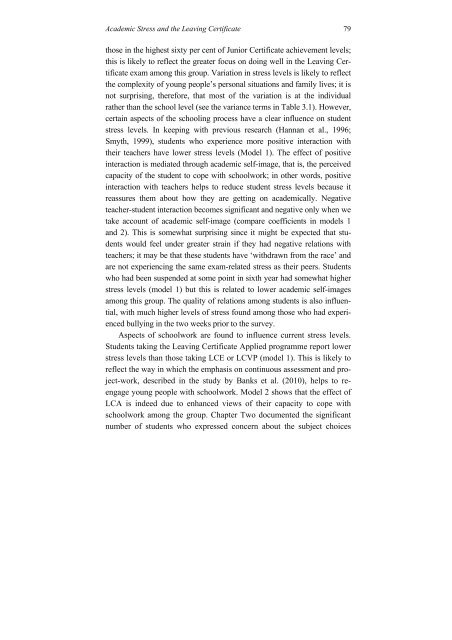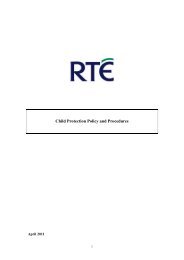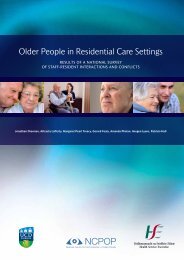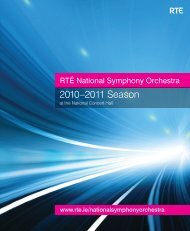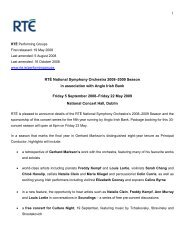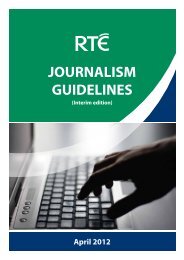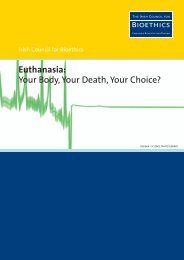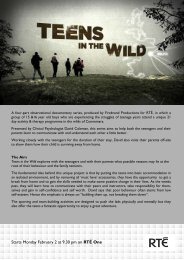From Leaving CertiFiCate to Leaving SChooL a Longitudinal Study ...
From Leaving CertiFiCate to Leaving SChooL a Longitudinal Study ...
From Leaving CertiFiCate to Leaving SChooL a Longitudinal Study ...
You also want an ePaper? Increase the reach of your titles
YUMPU automatically turns print PDFs into web optimized ePapers that Google loves.
Academic Stress and the <strong>Leaving</strong> Certificate 79<br />
those in the highest sixty per cent of Junior Certificate achievement levels;<br />
this is likely <strong>to</strong> reflect the greater focus on doing well in the <strong>Leaving</strong> Certificate<br />
exam among this group. Variation in stress levels is likely <strong>to</strong> reflect<br />
the complexity of young people’s personal situations and family lives; it is<br />
not surprising, therefore, that most of the variation is at the individual<br />
rather than the school level (see the variance terms in Table 3.1). However,<br />
certain aspects of the schooling process have a clear influence on student<br />
stress levels. In keeping with previous research (Hannan et al., 1996;<br />
Smyth, 1999), students who experience more positive interaction with<br />
their teachers have lower stress levels (Model 1). The effect of positive<br />
interaction is mediated through academic self-image, that is, the perceived<br />
capacity of the student <strong>to</strong> cope with schoolwork; in other words, positive<br />
interaction with teachers helps <strong>to</strong> reduce student stress levels because it<br />
reassures them about how they are getting on academically. Negative<br />
teacher-student interaction becomes significant and negative only when we<br />
take account of academic self-image (compare coefficients in models 1<br />
and 2). This is somewhat surprising since it might be expected that students<br />
would feel under greater strain if they had negative relations with<br />
teachers; it may be that these students have ‘withdrawn from the race’ and<br />
are not experiencing the same exam-related stress as their peers. Students<br />
who had been suspended at some point in sixth year had somewhat higher<br />
stress levels (model 1) but this is related <strong>to</strong> lower academic self-images<br />
among this group. The quality of relations among students is also influential,<br />
with much higher levels of stress found among those who had experienced<br />
bullying in the two weeks prior <strong>to</strong> the survey.<br />
Aspects of schoolwork are found <strong>to</strong> influence current stress levels.<br />
Students taking the <strong>Leaving</strong> Certificate Applied programme report lower<br />
stress levels than those taking LCE or LCVP (model 1). This is likely <strong>to</strong><br />
reflect the way in which the emphasis on continuous assessment and project-work,<br />
described in the study by Banks et al. (2010), helps <strong>to</strong> reengage<br />
young people with schoolwork. Model 2 shows that the effect of<br />
LCA is indeed due <strong>to</strong> enhanced views of their capacity <strong>to</strong> cope with<br />
schoolwork among the group. Chapter Two documented the significant<br />
number of students who expressed concern about the subject choices


